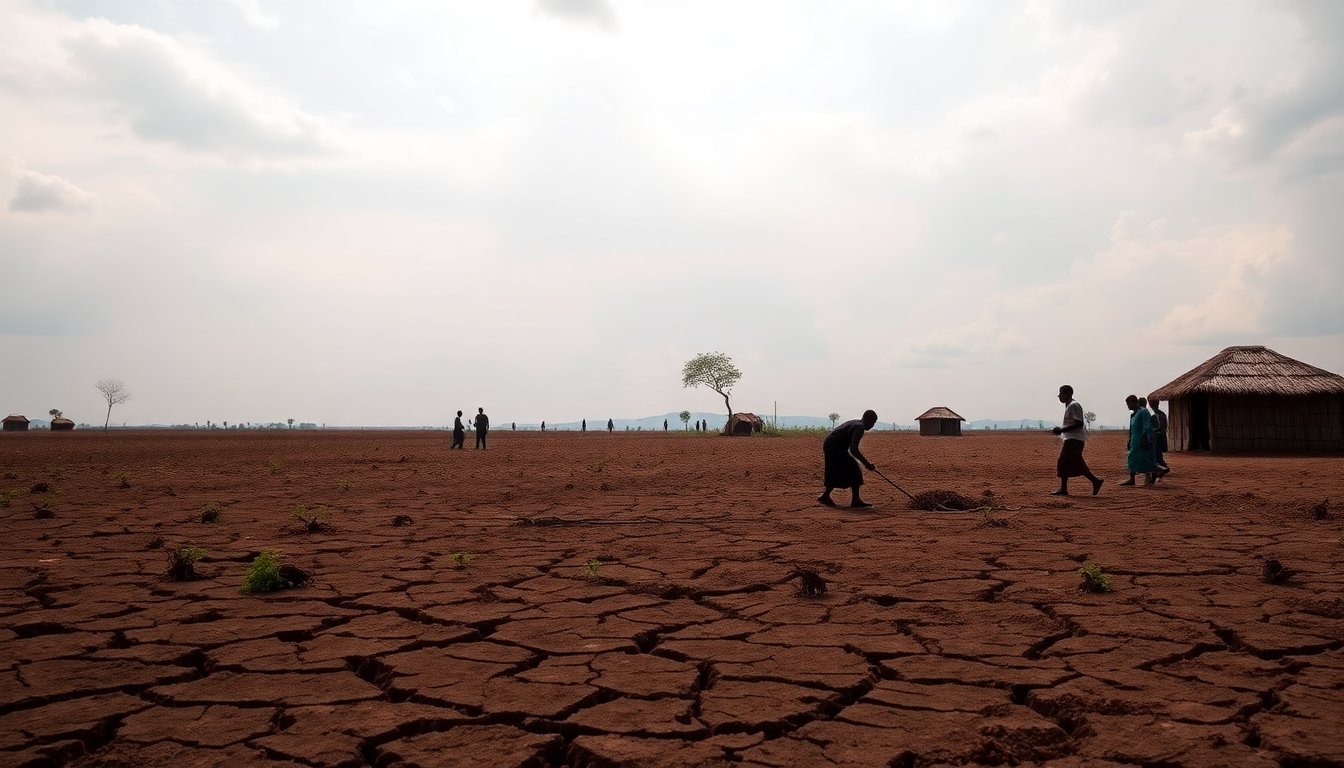Table of Contents
The situation in the eastern regions of the Democratic Republic of Congo (DRC) is becoming increasingly dire as the number of people experiencing severe hunger has nearly doubled compared to the previous year. According to the World Food Programme (WFP), a significant humanitarian crisis is unfolding, largely driven by ongoing violence and a catastrophic lack of funding.
Cynthia Jones, WFP’s country director for the DRC, emphasized the gravity of the situation during a media briefing in Geneva. She reported that the organization has only secured approximately $150 million in funding this year, while its operational requirements stand at a staggering $350 million to effectively address the needs of the population.
Escalating hunger levels
Within the provinces of North Kivu, South Kivu, Ituri, and Tanganyika, one in three individuals is grappling with levels of hunger that are classified as crisis or worse. This equates to over 10 million people, with about three million facing emergency levels of hunger, indicating a dramatic increase in food insecurity. Jones stated, “People are already dying of hunger,” highlighting the urgent need for intervention.
Impact of conflict on food security
The ongoing conflict in the region has significantly exacerbated the humanitarian crisis. Since, the M23 armed group, allegedly supported by Rwanda, has intensified its military operations, capturing key cities including Goma and Bukavu. This has resulted in a breakdown of governance and control over vital resources, including local mines. Although Rwanda denies any involvement, both the rebel group and Congolese forces are facing accusations of committing serious atrocities against the civilian population.
The fighting has rendered humanitarian access extremely challenging. Jones pointed out that the WFP may need to suspend all emergency food assistance by February or March 2026 if funding continues to dwindle. Additionally, the airports in Goma and Bukavu have been closed for months, further complicating logistics for aid delivery.
UNICEF’s urgent appeal for children
In parallel, the United Nations Children’s Fund (UNICEF) has issued an urgent appeal for $22 million to address the escalating crisis affecting children in the DRC. The UNICEF initiative aims to provide critical assistance amidst rampant violence and displacement. The recent surge in fighting has led to an alarming rise in the number of displaced individuals, with 658,000 newly displaced in North Kivu and South Kivu provinces within just three months, at least 282,000 of whom are children.
Consequences of displacement
As families flee conflict zones, many are forced to relocate multiple times, often finding shelter in overcrowded and unsanitary conditions. These environments increase the risk of disease outbreaks, such as cholera and measles, posing a significant danger to children. Mr. Jean Francois Basse, acting representative for UNICEF in the DRC, stressed the urgent need for all parties involved in the conflict to de-escalate hostilities to alleviate suffering.
Parents are reluctant to seek medical assistance for their sick children due to fears of violence and the lack of available healthcare facilities, leaving many children untreated. Additionally, children face threats of abduction, recruitment by armed groups, and sexual violence, exacerbating their vulnerability in this tumultuous environment.
UNICEF’s call for resources highlights the necessity of providing clean water, sanitation, and medical care to those most in need. Without immediate support, the situation for children in the DRC may deteriorate further, with long-lasting implications for their well-being.
The escalating hunger crisis in the eastern Democratic Republic of Congo presents a complex challenge compounded by conflict and inadequate funding. Both the WFP and UNICEF are sounding alarms about the urgent need for humanitarian intervention to prevent further suffering and loss of life.


